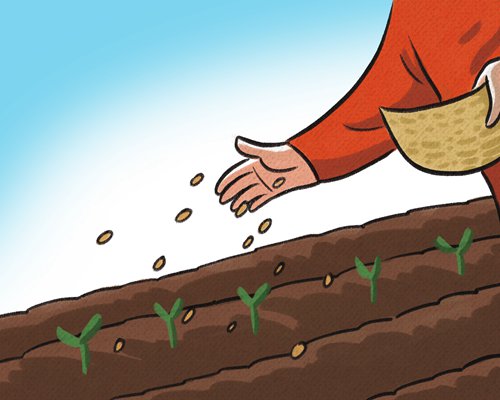
Illustration: Liu Rui/GT
Reporting on China's two sessions is a memorable experience of my journalistic career. I have been working in the media for more than a decade, a period that has offered me unique opportunities to cover an array of issues in Africa and the world at large.
In this career that I always longed for since my school days, I have reported on crime, economics, politics and sports, among other things.
Human interest stories, especially on poverty, have often burdened me to the point where I wished I could influence policy direction to implement measures needed to curb human suffering.
But I am glad that my journalistic pieces have in one way or another helped in drafting policies that would transform human lives. One such issue has been the role technical colleges can play in driving the future of a country.
As I reflect on my profession, I would not like to overlook what happened in March 2019. As it is with many other professions, I came up with an ambitious plan mid-2018 - that I needed to intensify my push for more anti-poverty policies through writing. In my plan, writing about China in Africa was one of the prime targets.
Indeed, the month of March presented an opportunity for me to be among foreign correspondents privileged to cover the highly respected two sessions in Beijing.
It has been peddled in many parts of Africa where I have visited during my fieldwork that China is bad for the continent. The claims have been validated by skewed media reports, especially in Europe and America, that the current Africa-China ties are nothing but neocolonialism.
It is so common today to hear from anti-China-Africa propagandists that youths can no longer get jobs because their places have been assumed by Chinese workers.
But we must state things as they are, objectively. China has magnificently transformed Africa.
From railways, power projects, roads and ports, these have had huge ramifications for different economies in Africa, creating thousands of jobs for young people.
The two sessions, which I later came to learn is also known as lianghui, opened my eyes wider. It gave me a very different view of China and its people. It showed me how seriously China takes its development agenda through the Chinese People's Political Consultative Conference. This outfit is an amalgamation of powerful businessmen and trade unions, among other organizations, which expresses people's will and allows the National People's Congress to make decisions.
What I therefore noticed at the two sessions is that China appraises its work over the past year and comes up with a powerful economic and social road map, giving its priorities for the coming year. The China-US relations, China's gross domestic product growth target, unemployment, and the fiscal deficits are some of the sticky issues that emerged.
Unlike other governments, whose officials prefer to stay away from media, ministers from various government agencies held a number of press briefings and even took questions from reporters.
It is from the two sessions that I learnt that China is taking seriously its relations with other countries. A law was endorsed that would ease pressure with the US, as well as Europe, by discouraging officials from forcing foreign firms to hand over technology.
Maybe the most enduring lesson I learnt from this political event is that African countries also need to come up with similar platforms that would enable influential leaders in respective countries to develop plans to define their future.
So far, apart from budgetary policy statements, I have not seen a single African country that has come up with such a strong conference that is all-inclusive. No doubt, with such summits, African countries would be able to chart their own development paths, but more importantly, know who and where international development partners can come from to plug in their wealth of knowledge and resources.
I applaud China for offering such a challenge to Africa and other continents in the world. This is worth aping if we are to foster relations between China and African countries.
The writer is an independent journalist based in Nairobi, Kenya. opinion@globaltimes.com.cn
